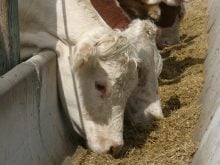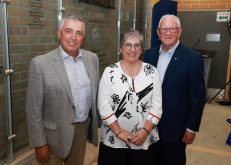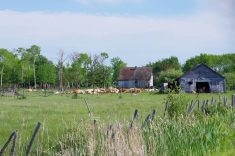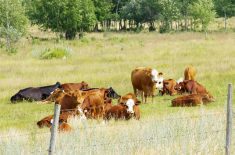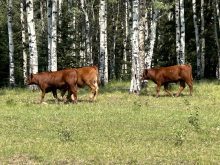A new beef-focused research chair will soon begin work at the University of Manitoba.
The 10-year role has been named the BCRC Chair in Beef Cattle Economic Sustainability.
“I believe this is the fourth chair position that we’ve developed,” said Craig Lehr, chair of the BCRC’s producer council.
Read Also

Crop quality looks good this year across Prairies
Crop quality looks real good this year, with the exception of durum.
This one, though, is different. Other BCRC-sponsored research chair positions are looking at production systems, forage management and diseases. This one brings in more of a financial lens.
“I feel it’s going to bring a lot of value to the industry,” said Lehr, who has a cow-calf and backgrounding feedlot northeast of Medicine Hat.
The BCRC’s long-term strategy had room for another chair position, and the organization had the funds to sponsor it, Lehr said. After discussions with BCRC executive director Andrea Brocklebank, it was decided that the position should have a focus on economics.
The chair will be focusing on both animal science and agricultural economics. The academic named to the role will have a background in both.
“One of the things associated with cow-calf operations is that they tend to be not as robust and economically viable as some other areas of farming,” said Martin Scanlon, dean of the faculty of agricultural and food sciences at the University of Manitoba.
“How do ranchers do what is right for the environment? Because you know, some of our students here are third-generation beef farmers. How are they going to be sustainable for five, six, seven generations? Beef farmers want to implement economically viable, sustainable practices, but they need to make sure they’re going to be workable.”
Lehr agreed.
“At the end of the day, if it doesn’t make you profitable or bring value to your farm or ranch, it’s not good. The simple thing is, you can’t be green if you’re in the red,” he said.
The work done by the chair and their research associates will help put a bottom line on farm practices so producers can make informed decisions, Lehr said.






